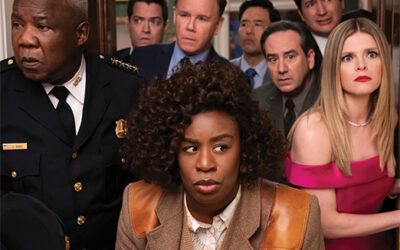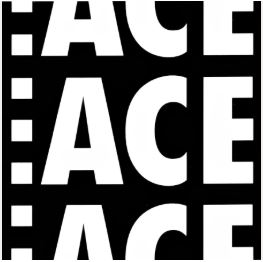February 13, 2021


Named for a peppery Korean herb, Minari is a tender, funny, evocative ode to how one generation of a family risks everything to plant the dreams of the next. It’s a tale of immigrants making a go at their own vision of the American Dream but director Lee Isaac Chung (Munyurangabo, Lucky Life, Abigail Harm) brings a fresh and illuminating take by using candidly detailed and personal family remembrances to tell a larger story about the impact of the immigrant journey on a new generation.
Harry Yoon, ACE, was introduced to Chung through Plan B producer Christina Oh. They had met on The Last Black Man in San Francisco on which Yoon was an additional editor. “We bonded over our common experience of growing up in predominantly white communities as Korean American immigrants and then making the risky choice to go into film,” Yoon says. “We became friends on that project and she called me as I was finishing [HBO and A24’s teen drama] Euphoria. She told me that she receives a lot of Asian American scripts and they normally follow a certain pattern about the journey of the children (the second generation) but that Minari felt so much more of a balanced telling that really honored the experience of the parents.
 “That really intrigued me. I got to meet Isaac over Zoom (he was teaching in Korea at the time). I read the script and fell in love with it for the same reason Christina did. It felt so specific and real and I came to understand that that’s because the script started as a collection of memories that Isaac jotted down about his childhood. We really bonded because I was able to connect to the script so deeply.”
“That really intrigued me. I got to meet Isaac over Zoom (he was teaching in Korea at the time). I read the script and fell in love with it for the same reason Christina did. It felt so specific and real and I came to understand that that’s because the script started as a collection of memories that Isaac jotted down about his childhood. We really bonded because I was able to connect to the script so deeply.”
Yoon arrived in the U.S. at age 5. His parents ran a series of small businesses in Northern California. “Being strangers in a strange land and being brought up together in a tight-knit family as a result of having to navigate all those challenges were things I identified with,” he says.
When he began working with Chung, Yoon’s biggest question was how the epilogue, which jumped forward in time, would work. “Given the investment the audience have made in the characters and actors, if we see a whole different set of actors where will that leave us in terms of the emotional journey that they’ve gone on? Ultimately, in the middle of pre-production Isaac wrote a different ending which is largely the one we see in the film. “I was so honored by that conversation. Nothing was too precious for him. He knew that sometimes the editing begins even before you shoot a frame.”
The film begins as recent Korean arrival Jacob (Steven Yeun) whisks his wife (Han Ye-ri, credited as Yeri Han) and family from California to the Ozarks of Arkansas, determined to carve out the rugged independence of farm life in the 1980s. The heart of the film is the unlikely friendship that blossoms between unruly 7-year-old David (Alan Kim) and his equally defiant grandma Soonja (Yoon Yeo-jeong). Yoon says he was constantly impressed by the dailies, shot by Lachlan Milne, ACS, NZCS. “They were so muscular. There wasn’t a lot of additional coverage that felt like a safety. They were always strong choices.”
During location photography in Tulsa, Oklahoma, Yoon was in L.A. at an edit room set up by A24 with assistant editor and former ACE intern Irene Chun. “Our amazing first AC and DIT, Jon Roman, would upload dailies he had processed from his apartment and Irene would download them and prep the dailies each day. I have a habit of sending scenes if the director wants to see them at the end of each week so I’d send them on a Friday and we’d then have a conversation over the weekend about what was working in terms of the characters and what the actors were bringing to the material and what lay ahead.
“I was very lucky to have met and hired Irene,” he adds. “From the moment I met her I knew she was fearless. She had a habit of wearing custom bow ties and suspenders that would match each occasion and when someone is unafraid to show a sartorial flair that is usually an indication of their level of confidence. What was really wonderful was that by speaking Korean and English she could handle processing dailies, the majority of which were in the Korean language. So, she became an asset all round.”
With the first assembly clocking over two hours 30 minutes, a large part of editorial was trimming to get to the truth of what they wanted to say with the film. “Isaac’s process from the beginning has been in presenting a collection of memories about his childhood. But on top of these were insights into his parents’ experience that he could identify with now as an adult. Outside of the family, there were also important moments with the community around them. Once we had laid all of this down, the process was how to get to what audiences find compelling about the story.
 “It was trial and error of removing certain scenes or sequences and screening it internally and ultimately screening to diverse sets of audiences. Sometimes the most important feedback isn’t what anyone says but about how the room feels. What was lovely, was the more we took away, the more happy accidents happened.”
“It was trial and error of removing certain scenes or sequences and screening it internally and ultimately screening to diverse sets of audiences. Sometimes the most important feedback isn’t what anyone says but about how the room feels. What was lovely, was the more we took away, the more happy accidents happened.”
One scene they removed entirely was where David has a sleepover at a friend’s house. “To put that in context, we’ve just learned that his grandmother has to go into hospital and, after the sleepover, there’s a scene where David’s friend’s father is questioning him about how his dad is doing with the farm. Those scenes bookend David’s growing realization that things are not well. He gains an understanding that the people around him are suffering. When we had the longer sleepover scene in, it detracted from that arc of emotional continuity. By taking it out we focussed much more on David’s experience and ended up on a beautiful shot of his face wondering ‘Is my father ok?’ We could then cut to a shot of Steven in the field with his head down in prayer. There was a connective tissue that we were able to establish by removing something that was so good but that ultimately was a detour.”]
Composer Emile Mosseri wrote two musical sketches in pre-production which Yoon listened to while watching dailies.
He says the music captured a sense of the land and the optimism that the land evoked. “That was a touchstone for me especially when assembling the more freeform montage sections such as when Jacob buys a tractor and plows his fields for the first time.
There was such lyricism, hope and a sweet sadness to it that informed tonally what we found to be true about the film.” Sound supervisor and mixer Kent Sparling invited Yoon to the mix at Skywalker Sound. “He understood this story and he knew the landscape as well. He understood what cicadas should sound like in the Ozarks and understood the density of sound and also the spareness required in the moods we were setting beat to beat.”
Audiences may watch the film wary of the moment when the family is inevitably confronted by prejudice but this never quite happens. “While Isaac never had scenes of any overt racism inthe film, we removed even some of the awkward or tone deaf moments because they started to feel unnecessary in terms of truth of the family story,” he says.
“More important to us was retaining the humor of the characters. Much of this came from the instinctual performances of our actors. As one example, when grandmother is unpacking I know from my own experience of Korean grandmothers and the dynamic between mothers and daughters that there was such a familiarity and a truth with everything she was doing in that scene. Alan Kim has such an instinctual sense for physical comic timing. In one scene he did a perfect triple take after realizing grandmother has taken some money and it conveys this growing realization that maybe I need to think again about everything I know about this woman.”
The push-and-pull between Korean American specificity and universality is a hallmark of the film and something of a dream project for the Korean American department heads working on it. “This is the kind of story I wanted to help tell since I made the decision to become a filmmaker,” Yoon says. “You can get a little cynical and wonder if this kind of story will ever be commercially viable or compelling to a broader audience.
You start to lose a little hope that it’s possible. Which is why this film is such a gift. The screening that’s most important to me is when I can finally share it with parents. I feel like the film helps us say to our parents that we see you and we can recognize you on screen. So, I feel honored to have had the chance to work on this.”
Featured in Content:
1st Quarter, 2021
ACE Board Message
FEATURES
Animation Showcase
The Midnight Sky
News of the World
One Night in Miami
Minari
Mank
Wonder Woman 1984
Nomadland
EDITOR’S CUT
ACE Holiday Party
STOCK FOOTAGE
Aspects of Editing
Tech Corner
Cuts We Love
Related Content
Cuts We Love: “Nobody Wants This”
"Nobody Wants This" Interview by Carolyn Giardina with Maura Corey, ACE, editor of Nobody Wants ThisMore...Explore Your Favorite TopicsEditFestTechnologyInterviewsMoviesNews A short excerpt from the ‘Virtual Glass of Wine’ British Film Editors interview series. David...
Cuts We Love: “The Diplomat”
"The Diplomat" Interview by Carolyn Giardina with Gary Levy, ACE, editor of The DiplomatMore...Explore Your Favorite TopicsEditFestTechnologyInterviewsMoviesNews A short excerpt from the ‘Virtual Glass of Wine’ British Film Editors interview series. David Fairhead BFE...
Explore Your Favorite Topics
EditFest
Technology
Interviews
Movies
News
A short excerpt from the ‘Virtual Glass of Wine’ British Film Editors interview series. David Fairhead BFE talks about the emotions working in the cutting room.
A short excerpt from the ‘Virtual Glass of Wine’ British Film Editors interview series. David Fairhead BFE talks about the emotions working in the cutting room.
A short excerpt from the ‘Virtual Glass of Wine’ British Film Editors interview series. David Fairhead BFE talks about the emotions working in the cutting room.
A short excerpt from the ‘Virtual Glass of Wine’ British Film Editors interview series. David Fairhead BFE talks about the emotions working in the cutting room.
CinemaEditorMag
Television
Editors On Editing
International
All Videos





